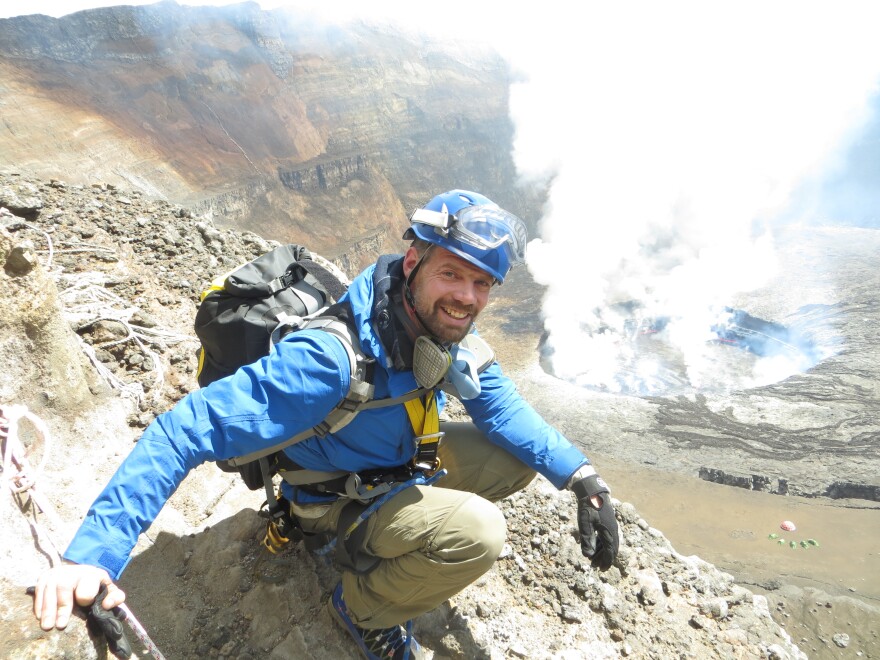He’s studied volcanoes in Chile and Guatemala. Now this Boise State University volcanologist is studying a lava lake in central Africa, hoping it can help scientists better understand when volcanoes are going to erupt.
Jeffrey Johnson lives here in Idaho, which is surrounded on both east and west sides by volcanic activity. Working in a geographic range between Mt. St. Helens and Yellowstone National Park, Johnson says it's crucial to learn the language of volcanoes, to better understand when they’ll erupt. To that end, he’s been listening to lava in a volcano in the Democratic Republic of Congo.

With funding from the BBC, Johnson and his colleagues dropped inside the volcano’s crater to study a lake of lava bigger than Bronco Stadium. Johnson “listens” to volcanoes with specialized monitors, to try to predict when they’ll change their activity, which can lead to an eruption.
Johnson just got back from a three-week field trip to the lava lake inside Nyiragongo. He said it was a complicated journey. It's a mile-high climb to the 11,000 foot summit and it took 500 porter loads to get the gear they needed to the volcano.
Johnson left sensors behind in Africa, which continue to “listen” to the volcano and feed information to him back home in Boise. He hopes research like his will not only help the people who live around that volcano, but residents who live around Mt. Rainier, Mt. St. Helens and other volcanoes in the Northwest.
Johnson documented his trip into Africa and dropping inside Nyiragongo. Watch his journey, including a drone fly over of the lava lake, below:
Johnson says his three-week field trip was sponsored by the BBC but much of his funding for his research comes from National Science Foundation grants at Boise State.
Find Samantha Wright on Twitter @samwrightradio
Copyright 2017 Boise State Public Radio



